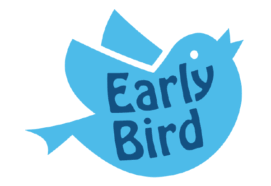In each LASER SIG newsletter, we focus on a different professional role. In this edition Christian Boakye and Gillian Davies give insider accounts of the role of Speech and Language Therapists.
This article forms part of the LASER SIG Newsletter March 2020.
Christian Boakye is a Highly Specialist Speech and Language Therapist based in The Wellbeing Team at HM Young Offender Institute Feltham, Barnet, Enfield and Haringey Mental Health Trust.
As a Speech and Language Therapist working in a prison, I am often asked, “what do you do, and why do prisoners need Speech and Language Therapy?” I’d like to share a little about my working life at HM YOI Feltham.
Feltham is a Young Offender Institute (YOI) in London that houses around 500 boys and young men aged 15 to 21. Research shows that more than 60% of young offenders present with speech, language and/or communication difficulties. My role involves highlighting the communication needs of our prisoners and providing direct and indirect support to these young men and colleagues across the prison.
“My role involves highlighting the communication needs of our prisoners and providing direct and indirect support to these young men and colleagues across the prison”
Providing support at any stage of the prisoner’s journey
A Speech and Language Therapist may provide support at any stage of a prisoner’s journey.
To help new arrivals of young people into custody understand prison jargon and the complex words used in the criminal justice system, I offer training on how to recognise and support communication needs to Resettlement Practitioners (Case Workers) who help induct new arrivals. As a result, the Resettlement team have recently purchased and now use ‘Wordbuster’. These are postcard size cards which contain 83 youth justice words explained using simple language, with visual support. The cards also include examples of how the word might be used in conversation and any other meanings the words might have. This way, Resettlement Practitioners are able to check our young men’s understanding of words often used within the criminal justice system and explain them where necessary.
With the help of a SLT Masters student, we will be producing a ‘jargon buster’ sheet that will go in an induction pack for new arrivals into custody. This sheet will contain prison specific expressions or terms such as ‘canteen’, which in prison describes items a prisoner may order from a prison catalogue as opposed to a place where meals are served.
I also work with prisoners towards the end of their sentence. I provide support to ensure prisoners are able to understand their licence conditions. Licence conditions are the set of rules prisoners must follow if they are released with still a part of their sentence to serve in the community. If these rules are broken, a prisoner is recalled back into custody. It is therefore important that these conditions are written and explained in a way that the prisoner is able to understand.
An interesting area for future research may be to explore the number of prisoners who are recalled to prison because of a failure to fully understand their licence conditions; perhaps due to a learning disability or an underlying difficulty with language.
Social Communication – working with prisoners to form pro-social relationships and stay in employment
A good ability to form pro-social relationships and stay in employment, are factors that have been shown to decrease the risk of re-offending. I therefore work with some prisoners coming up to their release date on their social communication skills and communication skills for employment. This includes interview skills and support to understand different styles of communication (e.g. passive, assertive, aggressive communication etc.). This work can be completed at any stage of their journey through custody but I find that it is particularly impactful towards the end of their sentence.
Assessment and support for those in custody
Not all our young men are sentenced prisoners. Some have been remanded into custody and are awaiting a trial. A few who are sentenced may however have an impending trial for a different offence. On several occasions, I have carried out speech and language assessments with this cohort that have revealed significant language difficulties. In these circumstances, I contact their Solicitors and advise that an ‘Intermediary’ should be requested to support the young man in court. An Intermediary is a professional who advises the court on the person’s ability to communicate and how best to work with that person during the proceedings. This ensures that an individual can meaningfully participate in court proceedings.
Back in custody, a big part of my role is to support prisoners to understand and participate in the prison regime and interventions offered by various agencies.
Speech
In terms of a client’s speech, I may offer assessment and interventions for prisoners who stammer, present with a lisp or other speech impairments.
Case example- TD
I recently worked with a young man with a rare genetic condition that affects his muscles. This affects his posture, gait and speech. I shall refer to this young man as T.D. T.D explained how as a child, he was immensely frustrated and angry about his inability to effectively express himself. He said friends and siblings would pick on him and blame him for things that would then get him in trouble. T.D explained that this frustration developed into anger and a strong will to prove himself “no matter what”. T.D reasoned that the attitude he developed as well as difficulty with anger, contributed to bringing him in contact with the criminal justice system.
Therapy involved helping T.D to understand his condition and its impact on his speech. T.D was also supported to utilise therapeutic strategies to improve the clarity of his speech. After therapy, T.D expressed increased confidence in his ability to express himself. He also reported decreased anxiety in social situations. He explained that he now feels less inclined to engage in acts of violence as a way of proving himself.
Language
Another part of my role as a Speech and Language Therapist is to assess the language skills of a prisoner and liaise with prison staff and facilitators of interventions about the best ways to present information so the prisoner is able to understand. This is done alongside therapy to improve a prisoner’s insight into their communication strengths and needs. Therapy also offers strategies to help the individual improve their communication skills. ‘Communication guidelines’ are written collaboratively with the prisoner and become the prisoner’s ‘communication passport’ which is shared with all relevant staff.
Case Example
On the day of writing this article, I went to a Challenge Support and Intervention Plan (CSIP) meeting for one of my clients. This is a meeting designed to support individuals who persistently engage in acts of violence. In the meeting, my client’s communication passport was credited with helping to significantly reduce the number of violent incidents he was involved in. This is because the majority of these incidents were caused by communication breakdown. Due to limited language skills, this young man had poor ability to express himself as well as understand information or instructions given. His communication passport highlighted these difficulties and gave staff guidance on how to effectively communicate with him. Indeed, individuals with communication difficulties are likely to demonstrate aggressive or aversive behaviour.
Help to improve participation
My clients often say: “I didn’t pay attention in school because I didn’t understand the teacher”. Some were too embarrassed to ask for help whilst some found it easier to truant or be the ‘class clown’. Similarly in custody, an individual may choose not to participate in interventions or even socialise with peers and staff. Intervention from a Speech and Language Therapist therefore helps to improve participation.
Autism Pathway
Lastly, I am proud to lead our Autism Pathway at HM YOI Feltham. I work with a Multi-Disciplinary Team consisting of Psychiatrists, Psychologists, Health Psychologists, Nurses, Occupational Therapists and myself as a Speech and Language Therapist. The pathway offers a diagnostic service and provides support for prisoners presenting with Autism Spectrum Conditions.
I thoroughly enjoy the varied nature of my role. I am passionate about supporting the population I work with. These are often troubled young men with complex histories. My hope is to be able to contribute something meaningful that will help them on their journey, and to continue to highlight the important role that effective communication plays in their rehabilitation.



Discussion
Oh well done Christian.
I was proud to see SLT in such a realistic light.
When, as a young therapist, I tried to work in a young offenders unit, I doubt very much if I got it as right as this.
Writing about Pragmatics later on in my career, I was keen to promote the sort of
approach that you describe, so it’s lovely to hear someone saying it’s useful.
Very best wishes.
Great article. Thank you! Heidi Keeling (also a SLT)
A very good read, thank you Christian. Whilst working as a teacher I lead the ECAT (Every Child A Talker) initiative in our nursery and reception classes and always remember the council’s SLT telling us that many inmates have communication difficulties. It was interesting to learn how you help them. It is such an important area of development. Keep up the great work!
Really interesting – thank you Christian
Keep sharing your valuable work
Wow Christian, so pleased to read of this innovative work and the difference it is making.
I retired 6 years ago after a 34 year career in SLT. What a long way the profession has come since I qualified. Proud to have belonged to a staff group with people like you in it, I wish you well for the rest of your career
Lovely to hear how you’re getting on Christian. You’re a credit to the team and prison service!
What a fantastic article. Thank you!
This is such important work. Congratulations Christian, you make a priceless contribution to the lives of so many. It’s great for them to have a role model too. Keep up the great work!!!
Christian this is such a great article. It has definitely given me a different perspective to Speech and Language Therapy. Keep up the good work. Continue changing lives
Great work Christian! You’re such an inspiration to humanity and the profession. We can all do our best possible in our corners where we content and full of gratitude! I look out to have the Stutterers Clinic for some stammerers/stutters there
Thank you for sharing this article! It’s very insightful as a Msc SLT student to read about qualified SLT’s in the field of Youth Justice.
Thank you
Enya
Thank you Christian, great article. Thanks also for raising the profile of prison SLT
Kia ora Christian from New Zealand. Wonderful to read this fantastic description of your work. I’ll be sharing this piece with colleagues here in speech-language therapy and with policy staff in our Ministries that look after young people and adults who have contact with the justice sector.
Thank you for this Christian, as a current SLT student with the ambition to work in a YOI once I qualify this has been an amazing insight to the roles and responsibilities.
I’m very grateful as information on this I have found is quite limited, I will be interested in any information you produce further to this.
Thank you again